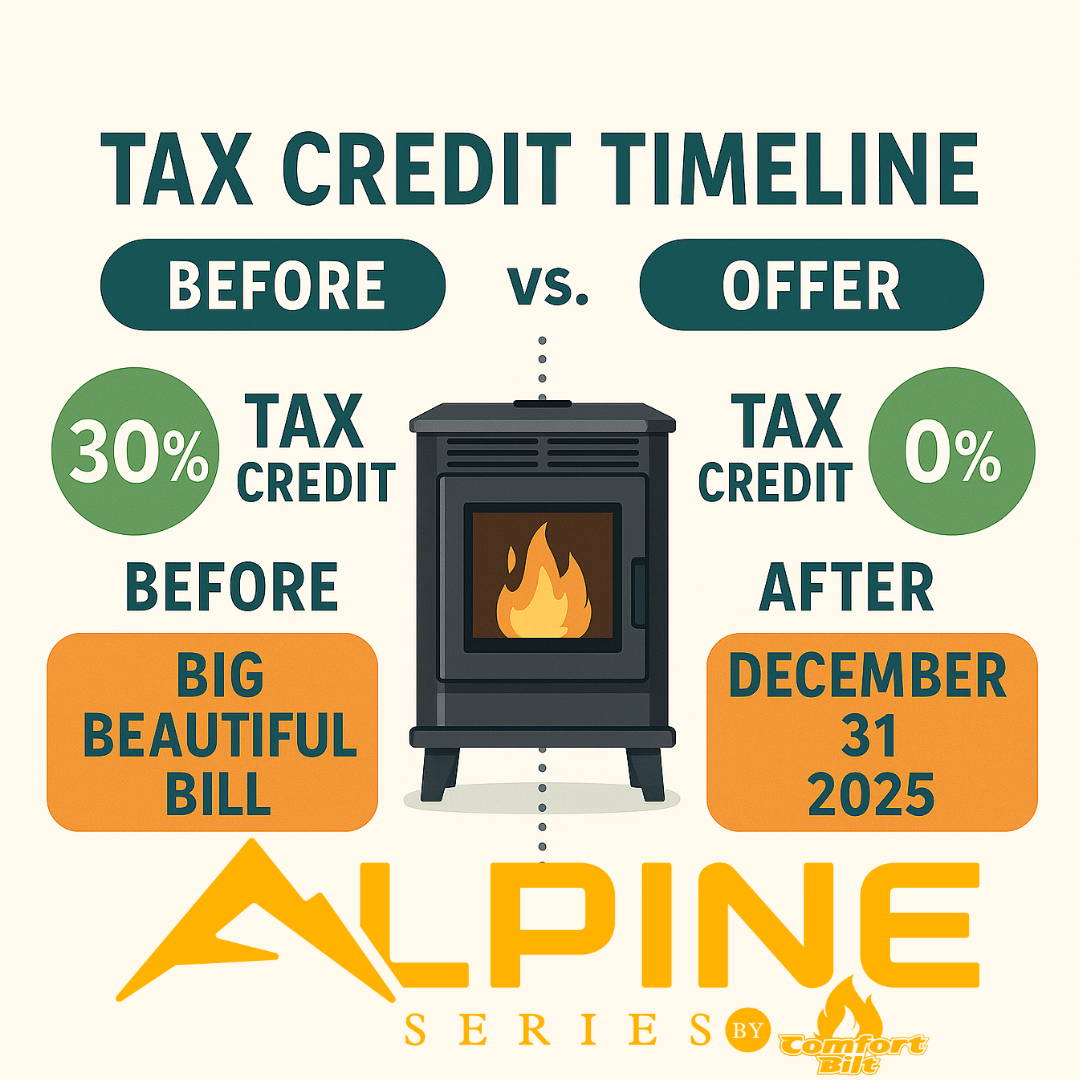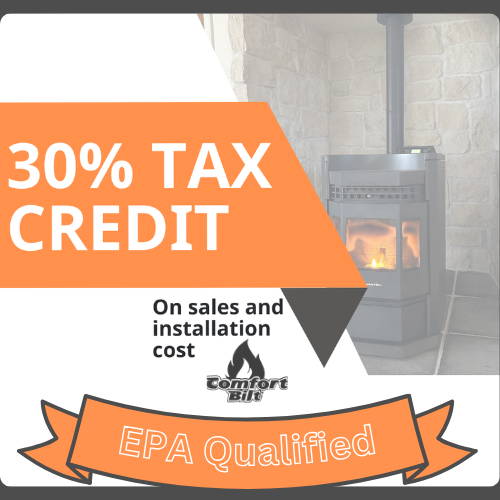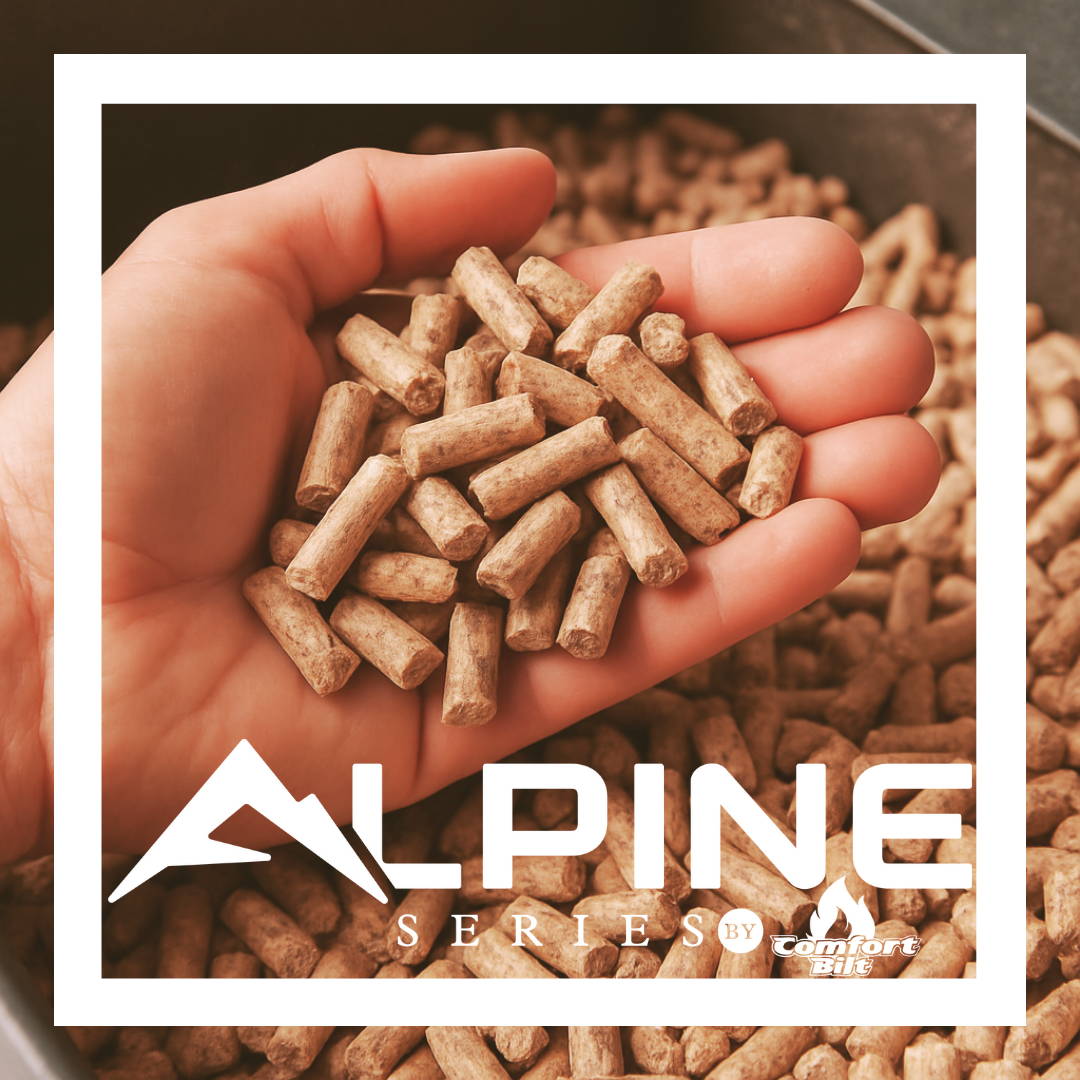How the "One Big Beautiful Bill" Changes Everything for Pellet Stove Buyers in 2025
Introduction
Homeowners across cold-weather climates are facing a major legislative change that is reshaping the pellet stove market. The recently signed "One Big Beautiful Bill Act" has fundamentally altered the tax incentive landscape for home heating equipment, creating both challenges and unexpected opportunities for pellet stove buyers.
What Is the "Big Beautiful Bill" and Why Should You Care?
The One Big Beautiful Bill Act, signed into law on July 4, 2025, represents one of the most significant changes to energy tax policy in recent years. While much of the focus has been on solar and wind energy, the legislation also has implications for residential heating equipment, particularly pellet stoves.
The bill accelerates the elimination of many clean energy tax credits that were originally set to expire at the end of 2032 under the Inflation Reduction Act. Most critically for homeowners, the Energy Efficient Home Improvement Credit (Section 25C) will expire for systems installed after December 31, 2025.
The Ticking Clock: What Tax Credits Are Disappearing?
Before the Big Beautiful Bill, homeowners could claim up to 30% of qualifying upgrade costs through various tax credits. The legislation cuts these incentives short, with major residential credits expiring for systems installed after December 31, 2025.
Here's what's changing:
Energy Efficient Home Improvement Credit (25C): Ending December 31, 2025
Residential Clean Energy Property Credit (25D): Ending December 31, 2025
Why This Actually Creates a Golden Opportunity for Pellet Stove Buyers
While the elimination of some tax credits might seem like bad news, it actually positions pellet stoves as an increasingly attractive heating option. Here's why:
1. Pellet Stoves Don't Rely on Disappearing Credits
Unlike heat pumps and solar systems that heavily depended on the now-expiring tax credits, pellet stoves have always been valued for their inherent cost-effectiveness and efficiency. With competing heating technologies becoming more expensive without subsidies, pellet stoves become more affordable in relation to other systems
2. Rising Relative Value
As heat pump installations lose their tax credit advantages, the total cost of ownership calculations shift dramatically in favor of pellet stoves. A $3,000 pellet stove installation remains $3,000, while a heat pump system that previously cost $7,000 after credits may now cost as much as $10,000, if not more.
Fall 2025: The Perfect Time to Consider a Pellet Stove
As summer draws to a close and fall quickly approaches, the legislative landscape has stabilized, making fall 2025 an ideal time for pellet stove installation. Here's why timing matters:
Seasonal Preparation Benefits
-Install before peak heating season demands
-Allow time for proper chimney and venting setup
-Stock up on pellets at off-season prices
-Test and adjust your system before you need it most
Market Positioning
The elimination of competing technology subsidies means pellet stoves now compete on their natural advantages:
-Lower upfront costs compared to heat pump systems
-Independence from electrical grid during outages
-Renewable fuel source with predictable pricing
-Cozy ambiance that electric systems can't match
What Pellet Stove Buyers Need to Know Right Now
No Rush for Credits
Unlike homeowners scrambling to install heat pumps before the December 31, 2025 deadline, pellet stove buyers can make informed decisions without artificial time pressure.
Focus on Efficiency Standards
While tax credits are disappearing, EPA efficiency standards remain. Look for pellet stoves with at least 75% thermal efficiency per the higher heating value (HHV) standard. Note: Every pellet stove in ComforBilt's lineup exceeds the 75% efficiency HHV.
Consider Your Total Heating Strategy
With the changing incentive landscape, now is the time to evaluate whether a pellet stove as primary heat, supplemental heat, or zone heating makes the most sense for your home.
Making Your Decision: Key Factors to Consider
Calculate Total Cost of Ownership
With the subsidy landscape leveled, compare the true costs:
-Initial equipment and installation
-Annual fuel costs
-Maintenance requirements
-Expected lifespan and replacement costs
Evaluate Your Home's Heating Needs
Consider factors like:
-Square footage and layout
-Existing heating systems
-Insulation quality
-Local pellet availability and pricing
Research Local Regulations
-Some areas have specific requirements for pellet stove installations, emissions standards, or burn restrictions during air quality events.
-Some states have tax incentives if installing a pellet stove. (IE Maryland, Maine, Vermont...)
The Bottom Line: A Simplified Market
The Big Beautiful Bill eliminates much of the complexity that previously surrounded home heating decisions. Without the web of tax credits and subsidies, homeowners can focus on fundamental questions:
-What heating method best serves your home's needs?
-Which option provides the best long-term value?
-What system gives you the comfort and reliability you want?
For many homeowners in cold climates, the answer increasingly points to pellet stoves or a pellet stove insert. They offer proven performance, predictable costs, and the satisfaction of heating with a renewable fuel source.
Preparing for Fall Installation
If you're considering a pellet stove this fall, start planning now:
1. Research Models: Compare efficiency ratings, BTU output, and features
2. Get Quotes: Installation costs vary significantly by region and complexity
3. Plan Your Space: Ensure proper clearances and ventilation
4. Source Your Fuel: Establish relationships with local pellet suppliers
Schedule Early: Avoid the rush when cold weather arrives
Looking Ahead: A Stable Market
The Big Beautiful Bill creates a more stable, predictable market for home heating equipment. While the elimination of tax credits affects some technologies more than others, it ultimately returns the market to fundamentals: performance, reliability, and value.
For pellet stove buyers, this represents an opportunity to choose heating equipment based on merit rather than temporary incentives. As fall approaches and heating season looms, pellet stoves stand ready to deliver the warmth, comfort, and efficiency that have made them a preferred choice for discerning homeowners.
The legislative dust has settled, the incentives have been clarified, and the choice is yours. This fall might just be the perfect time to discover why pellet stoves continue to heat homes efficiently, economically, and reliably—regardless of what happens in Washington.
ComfortBilt has a variety of options available for your home heating needs. To view our lineup of pellet stoves CLICK HERE, or compare our pellet stoves side by side by clicking HERE. For more information about wood stoves CLICK HERE




